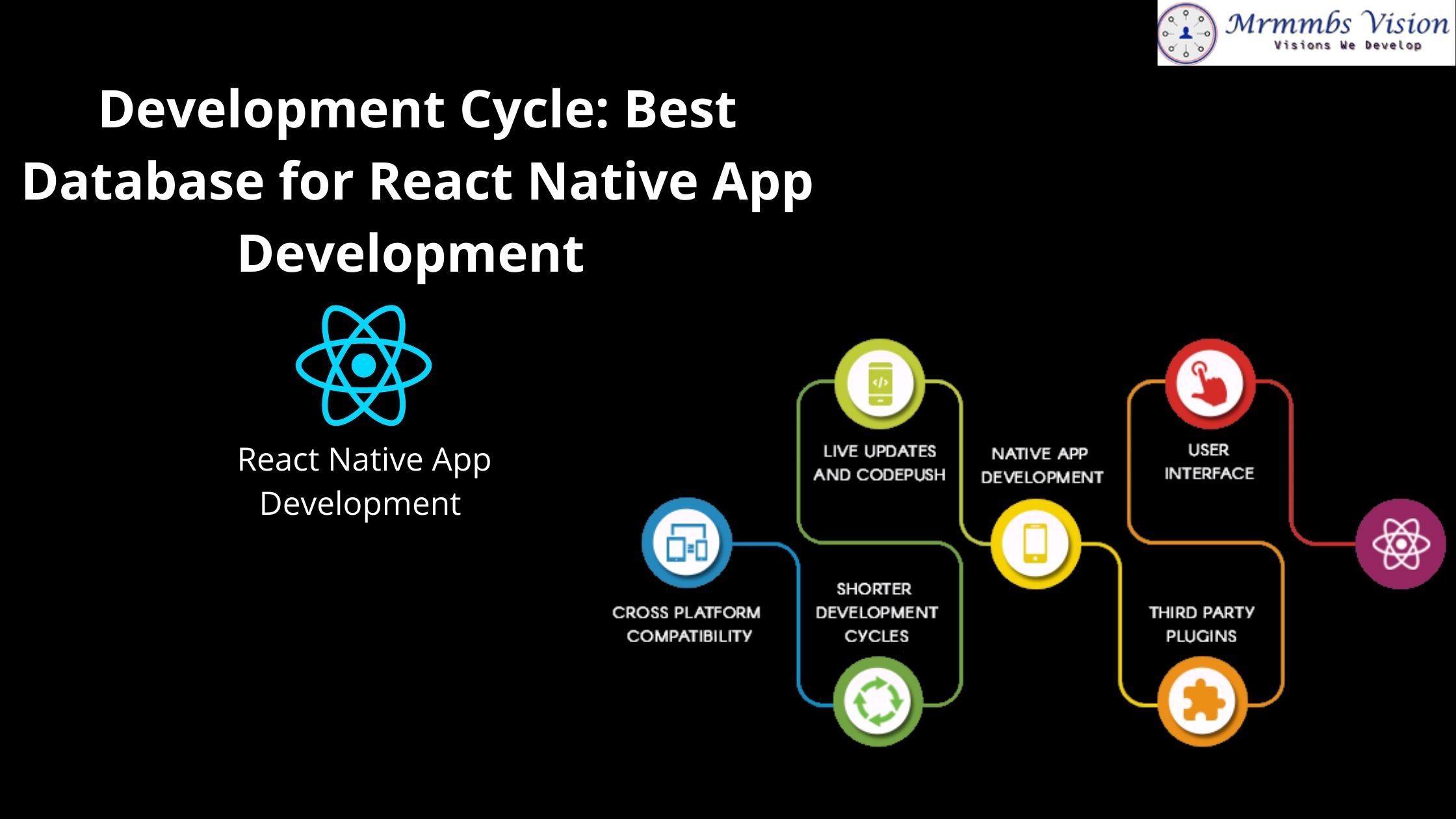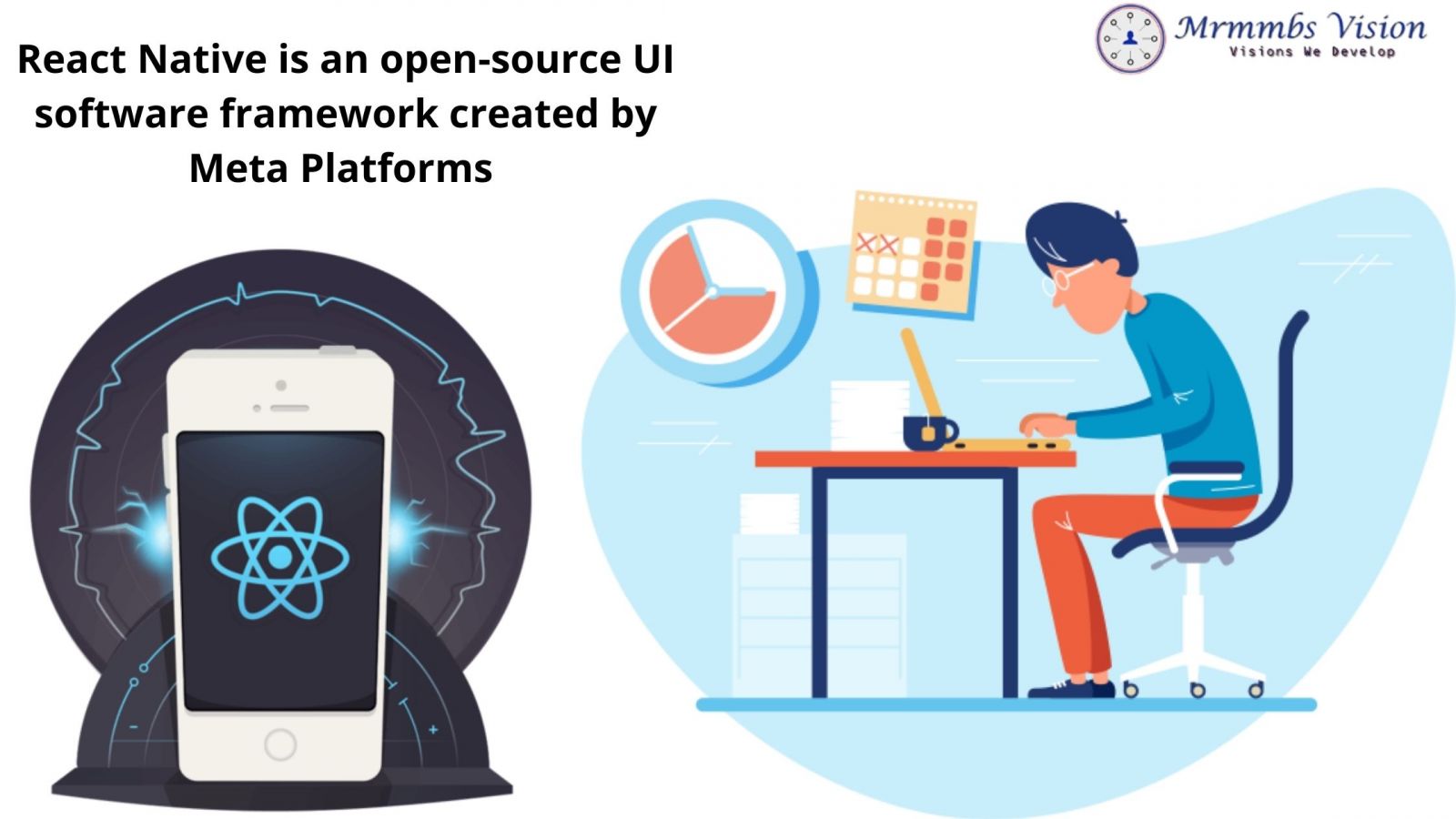
Development Cycle: Best Database for React Native App Development
The very first choice of establishment for a startup that is entering the arena of digitalization is to develop a platform for its audience that makes their life easier. With an aim to expand your working Kingdom a business needs to build a top-notch cross-platform application that is cost-effective and has very little development cycle time. In this challenging and constant change, digital arena developers go through different problems while selecting the right amalgamation of technology.
In the tech realm, there are numerous databases that a company can find and start developing but the process of selecting a database especially for React Native App development becomes a bit tougher. To make it easier it is always suggested to explore the criteria that help select the right data for react-native. Presented by Mrmmbs Vision Pvt. Ltd. a React Native App Development Company in Delhi below-mentioned are some aspects to note.
-
Memory power: Memory handling is an important factor responsible for selecting the right database. For the development of an application, the database should have high memory power which does not get the app crashed due to high storage problems. Clearing the cache in different time intervals is also needed to eliminate the extra data and make the memory more accessible.
-
The complexity of data: While you are selecting a database, always prefer the one that is familiar with the complexity of data, the one that can manage complicated data structures like documents and objects.
-
Managing data conflicts: Adding several features inside the app can result in more data conflicts. Always consider selecting a database that can easily share the management rules and can manage the data problems arising.
-
Ease of use: Always consider selecting a database that requires minimal efforts in the operation and development of the application. Select the one that has higher performance when developed and lesser efforts, etc.
-
Data Syncing: There are many businesses that want their apps to work in offline mode for which you need to select a platform that can sync data offline and help the apps work in offline mode.
Database Options for React Native Apps
-
Firebase
-
Realm
-
SQLite
-
PouchDB
-
WatermelonDB
Firebase
Firebase is a service provided by Google that supports the NoSQL database and leverages real-time listeners to secure the data. It helps developers build a highly responsive app with bare minimum efforts. Firebase is the topmost preferred database option for the development of react-native as it offers offline data change and data synchronization. It also offers high-flying benefits like:
Benefits of Firebase
-
Real-time data sync: Offers the opportunity to transfer the data in real-time without an internet connection.
-
Minimal setup: With cross-platform API the setup of React Native is minimal and no application server is needed in real-time for the development of the database.
-
Offline persistence: Firebase provides the benefit of offline persistence capabilities that includes marking users’ online and offline presence and also keeps the track of the disconnectivity of the network.
-
Higher security: Firebase provides the benefit of security as it is enforced completely from the server-side.
Realm
Realm is an open-source, object-oriented database operating 10 times quicker than another relational database used in developing both offline and real-time apps working on different platforms and devices. The database is used to develop mobile applications that are robust and highly responsive. The businesses that have a large chunk of business data can definitely take the Realm database into consideration, it also saves from running tonnes of queries like SQL or other relational databases present in the market.
Benefits of Realm
-
Great set of APIs: Realm offers a great set of APIs that developers can use in the development process.
-
Enhanced security: Realm uses different encryption standards and techniques that help enhance the security of the database and process of development. Realm provides the advantage of high security.
-
Offline friendliness: Realm offers offline friendliness with Redux offline. If a user wants to use offline-first architecture they can use redux offline.
-
Easy sync: Realm offers easy and automatic synchronization services that keep on running in the background and help locally store all the data, interactions, and service requests, etc.

SQLite
As the name suggests Lite, SQLite is a database designed and released in 2000 that offers local storage to mobile apps and requires minimal setup. SQLite database is a widely used SQL database engine that functions to store all data on devices and helps developers move away from the client-server architecture. SQLite offers plugins and extensions that act as a native for different platforms like iOS and Android and also allow writing and reading data in an encrypted format.
Benefits of SQLite
-
Offline persistence: SQLite offers the benefit of data storage with the help of plugins and extensions. The plugins manage the database within the app.
-
Acid compliant: The full-form of Acid in SQLite is Atomicity, Consistency, Isolation, and Durability that handles the database, and provides a sense of validation. The core properties defining acid make SQLite the most simple, easy-to-use, and authentic database option.
-
App performance: With an overall understanding of SQLite information a developer can enhance the app performance easily and can also resolve queries in no time.
-
Higher compatibility: SQLite is easier to use with a different leading programming language that minimizes the compatibility issues and makes it more reliable.
PouchDB
Built using CouchDB protocols and storage mechanism, PouchDB is an open-source JavaScript Database for App Development that preserves the data in JSON format. The data storage format of PouchDB helps developers create, read, update, and delete the data using JavaScript API.
PouchDB is considered to be compatible with MongoDB, PostgreSQL, and MySQL, etc. PouchDB makes the data syncing process easier as it stores the data locally when offline and syncs it later when the app is on an internet connection again.
Benefits of PouchDB
-
Easy data synchronization: PouchDB offers the advantage of easy data synchronization by syncing multiple user data at one time, using the native library, and any supported server.
-
Security: With the help of CouchDB, PouchDB provides excellent security features like it stores the passwords through cryptography, refreshes the cookies every 10 minutes, and easily encrypts communications.
-
Light-weight: The most preferred benefit of PouchDB is that it is extremely lightweight. It is 46KB in size if gzipped.
-
Supports offline and online capacities: It offers capabilities related to offline and online usage like data storage, data synchronization, etc.
WatermelonDB
Built on top of SQLite WatermelonDB is a SQL database that has a performance reactive database providing the potential to create tricky apps. WatermelonDB helps maintain speed and reliability by scaling hundreds and thousands of records and optimizes the building of complex applications with maximum focus on performance.
Benefits of WatermelonDB
-
Multi-threaded: WatermelonDB is multi-threaded as it has the capacity to scale more than thousands of records easily.
-
Higher speed: The WatermelonDB database provides the opportunity for higher speed as the app launches faster, is highly cached, etc.
-
Automatic Re-rendering: The advantage of automatic re-rendering is used whenever there is a change in the records. The UI components depend on automatic re-rendering.
-
Multi-platform: WatermelonDB provides developers a chance to build on multi-platform. It is suitable for development in iOS, Android, and the web.
Posted By: Mrmmbs Vision